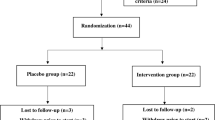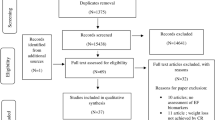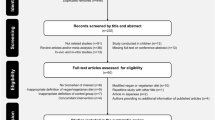Abstract
Background/Objectives:
Inter-cellular adhesion molecule 1 (ICAM-1), vascular cell adhesion molecule 1 (VCAM-1) and tumor necrosis factor-α (TNF-α), are implicated in atherogenesis. In addition, several types of oil as part of different types of diet are associated with the initiation of atherosclerosis and consequently with the risk of cardiovascular disease. However, the exact role of oil consumption on vascular inflammation remains unknown. In this parallel study, we assessed the acute effects of extra virgin olive oil, soy oil, corn oil and cod liver oil on circulating soluble(s) forms of adhesion molecules and TNF-α.
Subjects/Methods:
In all, 67 healthy volunteers were randomized to receive 50 ml of oil. Soluble forms of VCAM-1, ICAM-1 and TNF-α were measured by enzyme-linked immunosorbent assay at baseline and at 3 h post oil consumption.
Results:
All types of oil had no significant effect on soluble VCAM-1 levels (P=nonsignificant (NS) for all). On the contrary, all oil types decreased ICAM-1 levels (P<0.01). Olive oil (P<0.05), soy oil and cod liver oil (P<0.01 for both) reduced TNF-α levels significantly, in contrast to corn oil, which induced a nonsignificant decrease (P=NS). Moreover, there was a significant correlation between the absolute change in ICAM-1 and TNF-α levels (ρ=0.379, P<0.05), but not between the absolute changes in VCAM-1 and TNF-α levels (ρ=0.019, P=NS).
Conclusions:
Acute consumption of all types of oil decreased significantly ICAM-1 levels. In addition, olive oil, soy oil and cod liver oil decreased significantly TNF-α levels. Moreover, the absolute change in TNF-α levels was correlated with the absolute change in ICAM-1 levels. These findings indicate that acute consumption of specific types of oil is associated with specific significant anti-inflammatory effects.
This is a preview of subscription content, access via your institution
Access options
Subscribe to this journal
Receive 12 print issues and online access
$259.00 per year
only $21.58 per issue
Buy this article
- Purchase on Springer Link
- Instant access to full article PDF
Prices may be subject to local taxes which are calculated during checkout




Similar content being viewed by others
References
Azadbakht L, Atabak S, Esmaillzadeh A (2008). Soy protein intake, cardiorenal indices, and C-reactive protein in type 2 diabetes with nephropathy: a longitudinal randomized clinical trial. Diab Care 31, 648–654.
Bau PF, Bau CH, Rosito GA, Manfroi WC, Fuchs FD (2007). Alcohol consumption, cardiovascular health, and endothelial function markers. Alcohol 41, 479–488.
Biasucci LM, CDC; AHA (2004). CDC/AHA workshop on markers of inflammation and cardiovascular disease: application to clinical and public health practice: clinical use of inflammatory markers in patients with cardiovascular diseases: a background paper. Circulation 110, e560–e567.
Blann AD, Lip GY (2000). Cell adhesion molecules in cardiovascular disease and its risk factors—what can soluble levels tell us? J Clin Endocrinol Metab 85, 1745–1747.
Eschen O, Christensen JH, De Caterina R, Schmidt EB (2004). Soluble adhesion molecules in healthy subjects: a dose-response study using n-3 fatty acids. Nutr Metab Cardiovasc Dis 14, 180–185.
Forsythe LK, Wallace JM, Livingstone MB (2008). Obesity and inflammation: the effects of weight loss. Nutr Res Rev 21, 117–133.
Fuentes F, López-Miranda J, Pérez-Martínez P, Jiménez Y, Marín C, Gómez P et al. (2008). Chronic effects of a high-fat diet enriched with virgin olive oil and a low-fat diet enriched with alpha-linolenic acid on postprandial endothelial function in healthy men. Br J Nutr 100, 159–165.
Grundt H, Nilsen DW, Hetland Ø, Mansoor MA (2004). Clinical outcome and atherothrombogenic risk profile after prolonged wash-out following long-term treatment with high doses of n-3 PUFAs in patients with an acute myocardial infarction. Clin Nutr 23, 491–500.
Jenkins DJ, Kendall CW, Jackson CJ, Connelly PW, Parker T, Faulkner D et al. (2002). Effects of high- and low-isoflavone soyfoods on blood lipids, oxidized LDL, homocysteine, and blood pressure in hyperlipidemic men and women. Am J Clin Nutr 76, 365–372.
Klein CL, Bittinger F, Köhler H, Wagner M, Otto M, Hermanns I et al. (1995). Comparative studies on vascular endothelium in vitro. 3. Effects of cytokines on the expression of E-selectin, ICAM-1 and VCAM-1 by cultured human endothelial cells obtained from different passages. Pathobiology 63, 83–92.
Libby P, Ridker PM, Hansson GK (2009). Leducq transatlantic network on atherothrombosis. Inflammation in atherosclerosis: from pathophysiology to practice. J Am Coll Cardiol 54, 2129–2138.
Marquez-Martin A, De La Puerta R, Fernandez-Arche A, Ruiz-Gutierrez V, Yaqoob P (2006). Modulation of cytokine secretion by pentacyclic triterpenes from olive pomace oil in human mononuclear cells. Cytokine 36, 211–217.
Massaro M, Scoditti E, Carluccio MA, De Caterina R (2008). Basic mechanisms behind the effects of n-3 fatty acids on cardiovascular disease. Prostaglandins Leukot Essent Fatty Acids 79, 109–115.
Mena MP, Sacanella E, Vazquez-Agell M, Morales M, Fitó M, Escoda R et al. (2009). Inhibition of circulating immune cell activation: a molecular antiinflammatory effect of the Mediterranean diet. Am J Clin Nutr 89, 248–256.
Meydani M (2003). Soluble adhesion molecules: surrogate markers of cardiovascular disease? Nutr Rev 61, 63–68.
Micallef MA, Garg ML (2009). Anti-inflammatory and cardioprotective effects of n-3 polyunsaturated fatty acids and plant sterols in hyperlipidemic individuals. Atherosclerosis 204, 476–482.
Paulo MC, Andrade AM, Andrade ML, Morais MG, Kiely M, Parra D et al. (2008). Influence of n-3 polyunsaturated fatty acids on soluble cellular adhesion molecules as biomarkers of cardiovascular risk in young healthy subjects. Nutr Metab Cardiovasc Dis 18, 664–670.
Perez-Martinez P, Moreno-Conde M, Cruz-Teno C, Ruano J, Fuentes F, Delgado-Lista J et al. (2010). Dietary fat differentially influences regulatory endothelial function during the postprandial state in patients with metabolic syndrome: From the LIPGENE study. Atherosclerosis 209, 533–538.
Salas-Salvadó J, Garcia-Arellano A, Estruch R, Marquez-Sandoval F, Corella D, Fiol M et al. (2008). Components of the mediterranean-type food pattern and serum inflammatory markers among patients at high risk for cardiovascular disease. Eur J Clin Nutr 62, 651–659.
Serrano-Martinez M, Palacios M, Martinez-Losa E, Lezaun R, Maravi C, Prado M et al. (2005). A Mediterranean dietary style influences TNF-alpha and VCAM-1 coronary blood levels in unstable angina patients. Eur J Nutr 44, 348–354.
Tousoulis D, Papageorgiou N, Antoniades C, Giolis A, Bouras G, Gounari P et al. (2010). Acute effects of different types of oil consumption on endothelial function, oxidative stress status and vascular inflammation in healthy volunteers. Br J Nutr 103, 43–49.
Vogel RA, Corretti MC, Plotnick GD (2000). The postprandial effect of components of the mediterranean diet on endothelial function. J Am Coll Cardiol 36, 1455–1460.
Author information
Authors and Affiliations
Corresponding author
Ethics declarations
Competing interests
The authors declare no conflict of interest.
Rights and permissions
About this article
Cite this article
Papageorgiou, N., Tousoulis, D., Psaltopoulou, T. et al. Divergent anti-inflammatory effects of different oil acute consumption on healthy individuals. Eur J Clin Nutr 65, 514–519 (2011). https://doi.org/10.1038/ejcn.2011.8
Received:
Revised:
Accepted:
Published:
Issue Date:
DOI: https://doi.org/10.1038/ejcn.2011.8
Keywords
This article is cited by
-
Chemical composition and nutritional function of olive (Olea europaea L.): a review
Phytochemistry Reviews (2018)
-
High-fat meal, systemic inflammation and glucose homeostasis in obese children and adolescents
International Journal of Obesity (2017)
-
The effect of topical olive oil on the healing of foot ulcer in patients with type 2 diabetes: a double-blind randomized clinical trial study in Iran
Journal of Diabetes & Metabolic Disorders (2015)
-
Oxidative Stress and Early Atherosclerosis: Novel Antioxidant Treatment
Cardiovascular Drugs and Therapy (2015)
-
Circulating inflammatory and atherogenic biomarkers are not increased following single meals of dairy foods
European Journal of Clinical Nutrition (2012)



